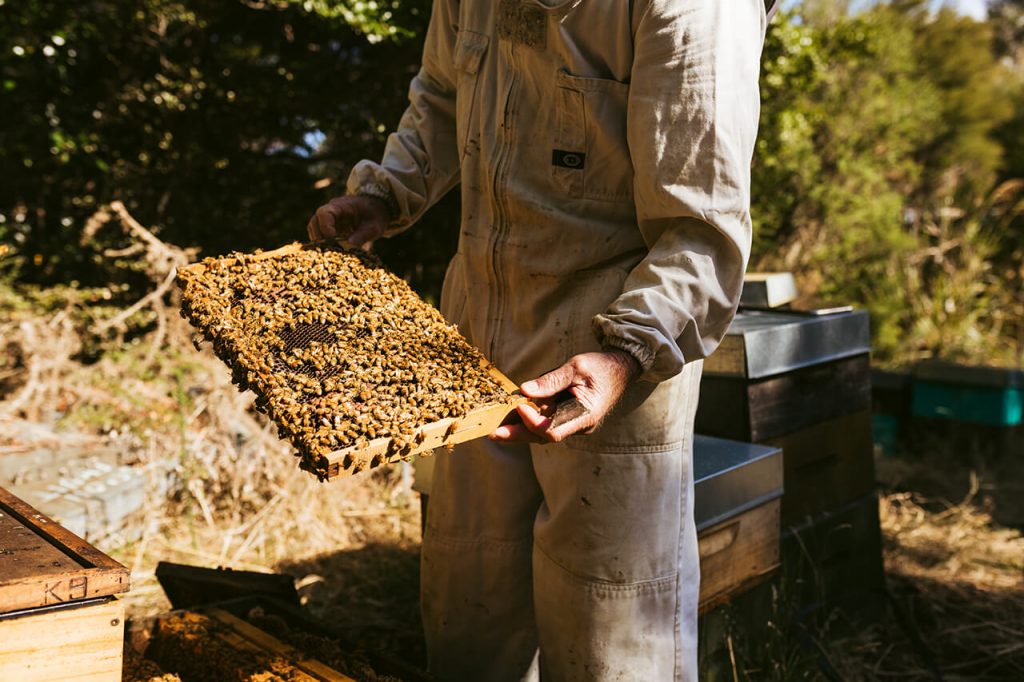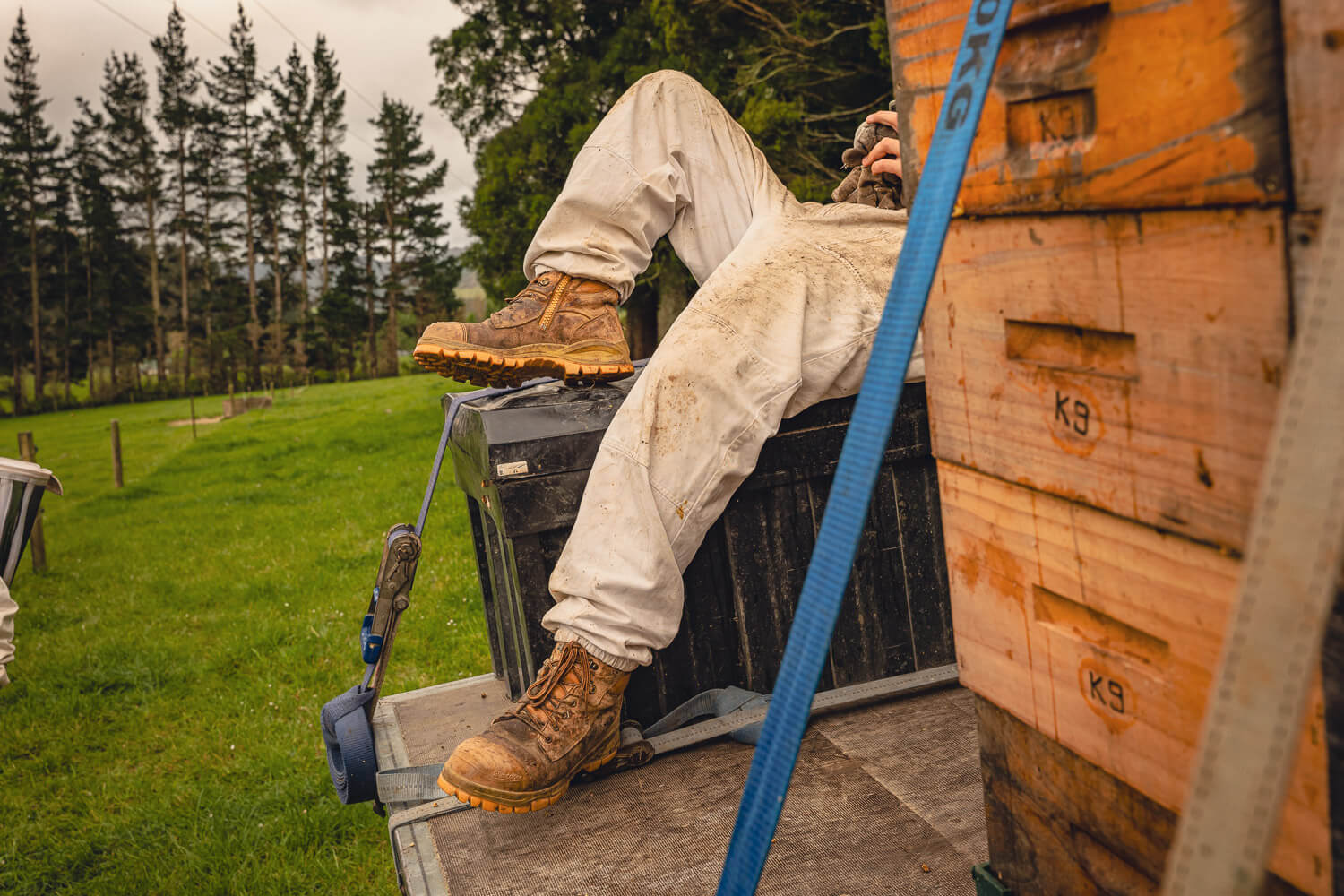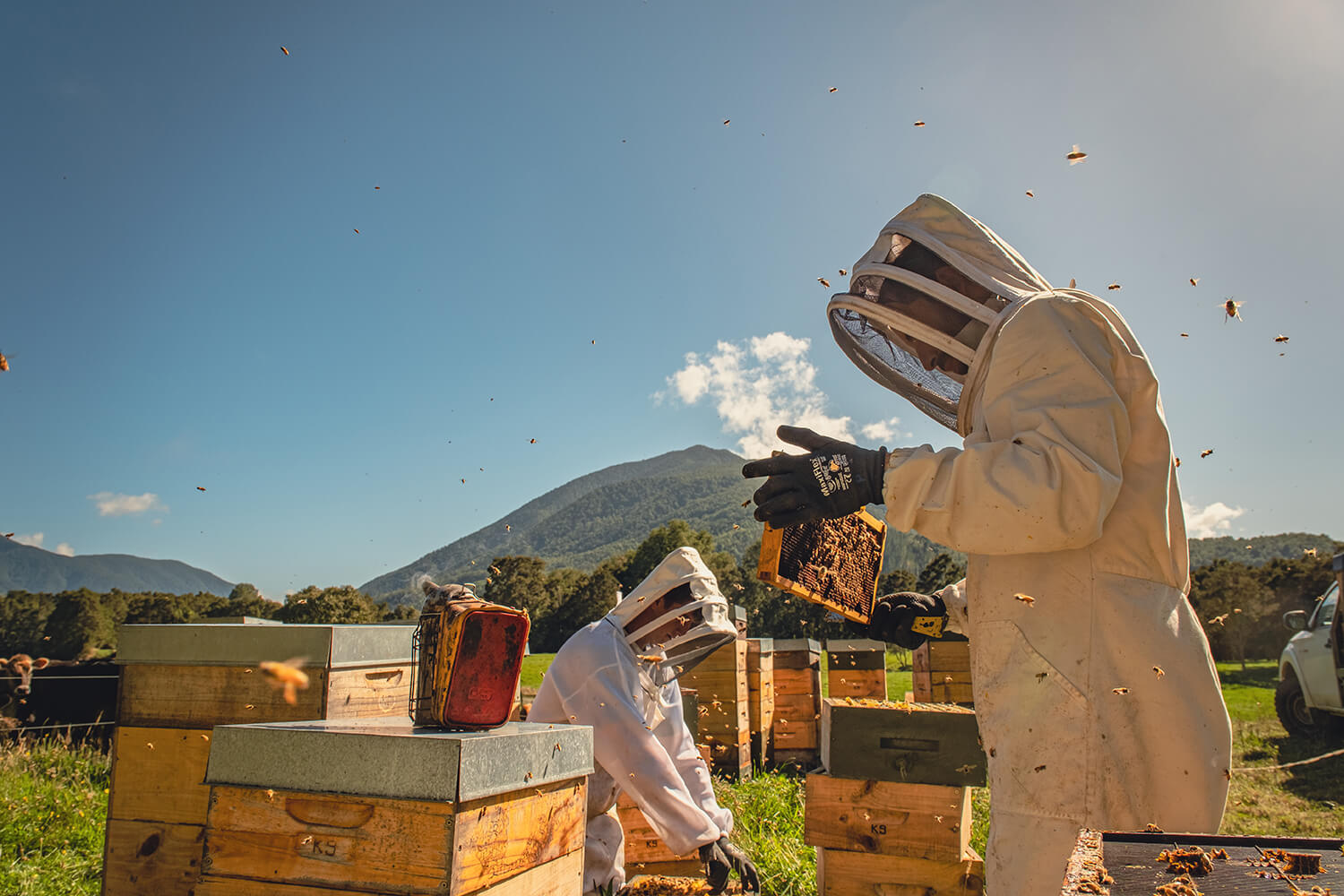The Past, Present & Future of Beekeeping in NZ
Looking to the future of New Zealand’s beekeeping industry, the priority is looking after our honeybees, and making sure they are in an environment where they can thrive.
“The honeybees are the most important thing,” according to Murray Elwood, co-owner of Mountain Valley Honey.

“If you’re a good beekeeper, your priority is looking after your bees and making sure they’ve got enough honey year-round, as well as keeping them healthy.”
When Murray first started beekeeping, beekeepers were in the business simply for the love of it.
“It was very hard to make a living out of beekeeping, and to do so you had to be very switched on.”
Beekeepers also respected the sites of other beekeepers and gave everyone a decent amount of space between apiaries.
“There were so many areas where there weren’t many bees. So, wherever you put your hives, you would get a good crop of honey because the sites weren’t overcrowded.
“There were also very few diseases, however, we still had to be careful to look out for them.”
When Varroa came to New Zealand 19 years ago, beekeepers had no choice but to become more diligent when looking after their hives.
Then, the discovery of the antibacterial properties in Mānuka Honey gained worldwide recognition.
“Once the health benefits of Mānuka Honey became known, both the demand and price for it increased. As a result, beekeepers could make a decent living out of Mānuka Honey alone.”
The beekeeping industry has thrived for the last 12-13 years, as New Zealand honeys are more recognised for the variety, quality and taste.”
New Zealand has some of the best honeys in the world and all varieties deserve to be celebrated.
“New Zealand Beekeepers are very good at making bee health the number one priority, and because of this, we are spoilt for choice when it comes to different varieties of honeys you can try.”


